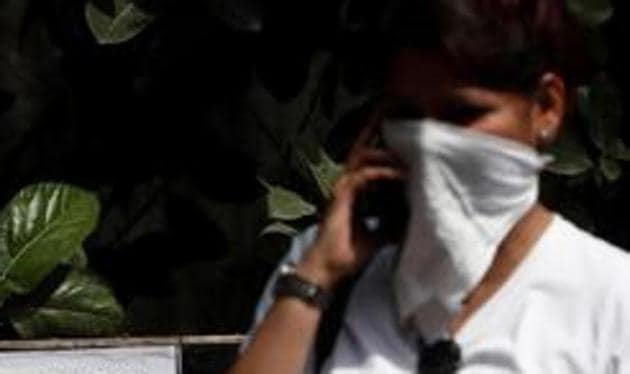Turn the coronavirus crisis into an opportunity
It is not merely a public health scare. Decarbonise the economy, reduce air travel, and ban wildlife trade
The planet is in intensive care, and it has taken a possible pandemic to shake us out of our inertia. One of the world’s biggest economies, China, came to a halt when the coronavirus was detected. To date, it has affected over 100,000 people in more than 100 countries. Incidentally, the disease was thought to have been transmitted to humans via bats and pangolins, although further research is still needed on its origins.

But the virus is more than just a health crisis. It is symptomatic of all that we have unleashed on our planet in the name of development. As we course-correct to combat the coronavirus, even the short-term measures that have been put in place to contain the virus have helped improve the planet’s condition. A recent report of Carbon Tracker, a London-based not-for-profit think tank researching the impact of the climate crisis on financial markets, said that China staved off a quarter or more of its Co2 emissions in two weeks by stopping work at manufacturing units and construction sites to quarantine its workers. These restrictions led to fewer numbers of vehicles on the road, and air travel dropped by 70%. The European Space Agency and NASA images showed a drop in pollutants like nitrogen oxide that lead to respiratory diseases, asthma and breathing problems.
Another decision made by the Chinese authorities could have far-reaching implications for the planet. Since the coronavirus is believed to have originated from a wildlife food market, the authorities banned consumption of wildlife meat. A massive crackdown has been initiated on wildlife farms and breeding centres. This could help the conservation of a number of species, in particular the pangolin that has been on the verge of extinction. Pangolin meat is considered a delicacy, and their scales are used in traditional medicine. Experts, however, remain sceptical about whether the ban on wildlife trade will be permanent, and if the restrictions will apply to traditional Chinese medicine as well.
Are these measures too little, too late? In 2018, the Intergovernmental Panel on Climate Change Special Report on 1.5°C had said that any warming of 1.5°C is not considered “safe” for most nations, communities, ecosystems and sectors, and poses significant risks to natural and human systems. The same report added: “The principal vectors for dengue fever, chikungunya, yellow fever, and the zika virus — are projected to increase in number, with a larger geographic range by the 2030s than at present, which could put more individuals at risk of the diseases they carry, with regional differences.” And, prophetically, the report stated that incidents of zoonotic diseases will grow.
It’s taken a disease in a small province in China to bring the world to a halt. But if we continue to treat this as just a “health crisis”, we are signing ourselves up for more pandemics. The Amazon fires and Australian bushfires are symptomatic of our inertia on climate. And, yet, a state of crisis could give us opportunities to heal the planet. The reduced emissions, even if temporary, means a far lesser number of people are exposed to air pollution, and serve as an example that significant policy shifts aimed at decarbonising our economies could help improve lives. Can we use the coronavirus epidemic as an opportunity to decarbonise our economy, and shake us out of our inertia to respond to the climate crisis? We can cut fossil fuel consumption and air travel, and ban wildlife trade to save ourselves from pandemics, and also help the planet to heal.
Bahar Dutt is an award winning environment journalist and the author of Rewilding –India’s experiments in saving nature.
The views expressed are personal






